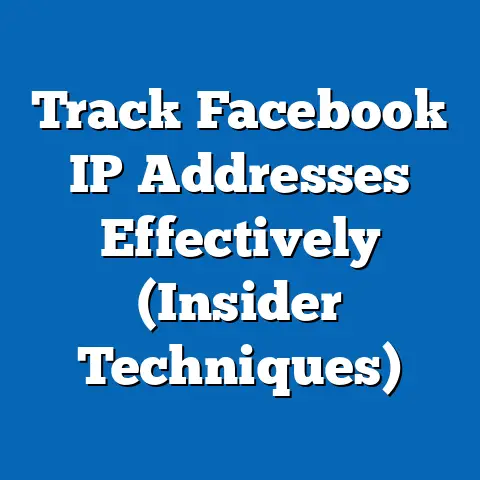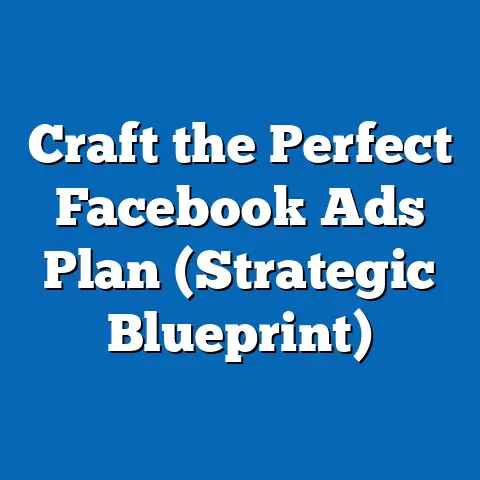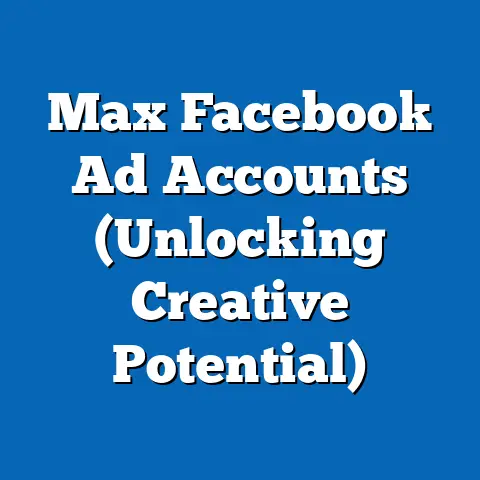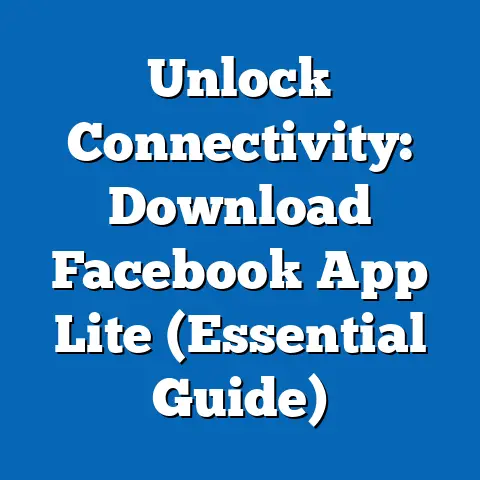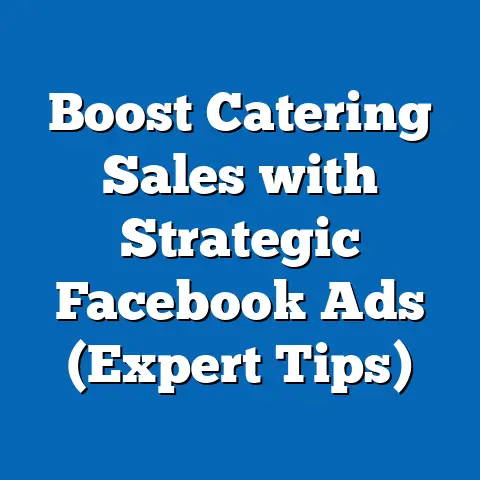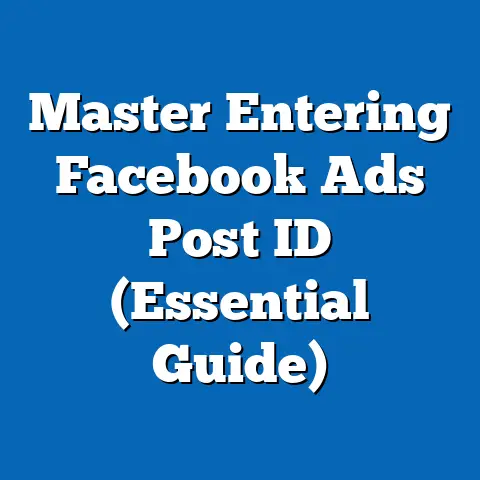Master Facebook Ads Manager (Expert Strategies Revealed)
Mastering Facebook Ads Manager: Expert Strategies Revealed
The digital advertising landscape has transformed dramatically over the past two decades, and at the heart of this evolution lies Facebook Ads Manager—a powerful tool that has become indispensable for businesses, marketers, and entrepreneurs.
Its ease of use, combined with robust features, allows users of varying expertise levels to create, manage, and optimize ad campaigns with relative simplicity.
However, mastering this platform requires a deep understanding of its intricacies, strategic planning, and adaptability to ever-changing algorithms and user behaviors.
Defining Characteristics of Facebook Ads Manager
Facebook Ads Manager is a centralized platform launched by Meta (formerly Facebook) to facilitate the creation, management, and tracking of advertising campaigns across Facebook, Instagram, Messenger, and the Audience Network.
Its defining characteristic is its accessibility—designed for both beginners and seasoned marketers, it offers an intuitive interface that simplifies complex advertising tasks.
Users can set budgets, define target audiences, create ad content, and monitor performance metrics all within a single dashboard.
Beyond ease of use, the platform’s granular targeting capabilities stand out as a cornerstone of its appeal.
Advertisers can segment audiences based on demographics, interests, behaviors, and even life events, ensuring that ads reach the most relevant users.
Additionally, the integration of machine learning through features like the Facebook Pixel and automated ad optimization allows for data-driven decision-making, enhancing campaign efficiency.
Another key characteristic is its scalability.
Whether managing a $10 daily budget for a local business or a multimillion-dollar global campaign, Ads Manager adapts to varying needs.
This flexibility, paired with real-time analytics, empowers users to pivot strategies quickly based on performance insights.
However, the platform’s complexity often lies beneath its user-friendly surface, requiring expertise to unlock its full potential—a theme we will explore through expert strategies later in this article.
By 2007, with the introduction of Facebook Ads, the platform began leveraging user data to offer targeted advertising—a novel concept at the time.
This era marked a shift from traditional mass marketing to personalized, data-driven campaigns, fundamentally altering how businesses approached customer engagement.
The launch of Ads Manager in 2011 further streamlined this process, consolidating tools for ad creation, budgeting, and reporting into a unified interface.
The historical context of Ads Manager’s development aligns with significant societal and technological shifts.
The early 2000s saw the rapid rise of social media, coinciding with increased internet access and mobile device adoption.
Facebook capitalized on these trends, positioning itself as a hub for social interaction and, consequently, a goldmine for advertisers seeking to reach engaged audiences.
Over the years, Ads Manager evolved in response to user needs and competitive pressures.
The introduction of Instagram ads in 2015 (following Meta’s acquisition of the platform) and the expansion into video and Stories formats reflected the growing demand for visual, dynamic content.
Additionally, privacy concerns and regulatory changes, such as the General Data Protection Regulation (GDPR) in 2018 and Apple’s App Tracking Transparency (ATT) framework in 2021, forced Meta to adapt its targeting mechanisms, emphasizing first-party data and contextual advertising.
This historical trajectory underscores Ads Manager’s role as both a product of and a driver of digital transformation.
Its ability to evolve with technological advancements and societal expectations has cemented its status as a cornerstone of modern marketing, though not without challenges and controversies—an aspect we’ll explore in the societal implications section.
Societal Implications of Facebook Ads Manager
The societal impact of Facebook Ads Manager extends far beyond marketing, influencing consumer behavior, economic structures, and even political landscapes.
At its core, the platform has democratized advertising, enabling small businesses and individual creators to compete with larger corporations on a relatively even playing field.
This accessibility has fostered entrepreneurship and innovation, allowing niche brands to reach global audiences without the prohibitive costs of traditional media.
However, this democratization comes with complexities.
The platform’s targeting capabilities, while powerful for advertisers, have raised significant privacy concerns.
High-profile incidents, such as the Cambridge Analytica scandal in 2018, exposed how user data could be exploited for political manipulation, sparking debates over digital ethics and regulation.
As a result, Ads Manager’s role in shaping public opinion—through targeted political ads or misinformation campaigns—remains a contentious issue, prompting calls for greater transparency and oversight.
Economically, Ads Manager has contributed to the growth of the gig economy and digital marketplaces.
Platforms like Shopify and Etsy owe much of their success to affordable, effective advertising through Meta’s tools, enabling independent sellers to scale operations.
Yet, this reliance on digital ads has also created disparities, as businesses with limited budgets or tech know-how struggle to keep pace with algorithm-driven competition.
Culturally, the platform has influenced how society consumes content and perceives brands.
The rise of influencer marketing, fueled by Ads Manager’s ability to target niche communities, has blurred the lines between authentic engagement and paid promotion.
Moreover, the constant exposure to tailored ads shapes consumer desires and behaviors, often reinforcing materialism or unrealistic standards—a phenomenon particularly pronounced among younger generations.
These implications highlight the dual nature of Ads Manager as both an enabler of opportunity and a source of ethical dilemmas.
As we dive into expert strategies for mastering the platform, it’s critical to keep these broader impacts in mind, recognizing the responsibility that comes with wielding such a powerful tool.
Core Functionalities of Facebook Ads Manager: A Deep Dive
Before exploring advanced strategies, it’s essential to understand the core functionalities that make Ads Manager a versatile advertising platform.
At its foundation, the tool operates on a three-tiered structure: Campaigns, Ad Sets, and Ads.
Campaigns define the overarching objective (e.g., brand awareness, traffic, or conversions), Ad Sets specify targeting and budget parameters, and Ads contain the creative content users see.
One of the platform’s standout features is its objective-based advertising framework.
Users can choose from objectives like engagement, lead generation, or app installs, and the algorithm optimizes delivery accordingly.
This goal-oriented approach ensures that campaigns align with specific business outcomes, a feature particularly valuable for performance-driven marketers.
Targeting options within Ads Manager are another critical component.
Beyond basic demographics, users can create Custom Audiences from existing customer data, Lookalike Audiences to reach similar users, and Interest-Based Audiences to tap into specific hobbies or behaviors.
The platform also supports retargeting through the Facebook Pixel—a code snippet that tracks website visitors for follow-up ads.
Budgeting and bidding strategies offer further control, allowing users to set daily or lifetime budgets and choose between manual and automated bidding.
Features like Campaign Budget Optimization (CBO) distribute funds dynamically across Ad Sets for maximum results, reducing the guesswork for advertisers.
Additionally, the Ads Manager dashboard provides detailed metrics—impressions, click-through rates (CTR), cost-per-click (CPC), and return on ad spend (ROAS)—enabling real-time performance tracking.
While these functionalities form the backbone of Ads Manager, their effective use requires strategic insight.
The following sections reveal expert tips for navigating common challenges and maximizing campaign success.
Expert Strategies for Mastering Facebook Ads Manager
1. Crafting a Data-Driven Audience Strategy
One of the most critical elements of a successful campaign is audience targeting, and experts emphasize the importance of data-driven segmentation.
Start by leveraging Custom Audiences to re-engage past customers or website visitors—statistics show that retargeting campaigns often yield a 2-3x higher conversion rate compared to cold audiences.
Upload email lists or use the Facebook Pixel to track user behavior, ensuring ads reach individuals already familiar with your brand.
Next, expand reach with Lookalike Audiences, which use Meta’s algorithm to identify users similar to your best customers.
Experts recommend starting with a narrow source audience (e.g., top 1% of converters) to ensure high relevance.
Continuously refine these audiences by excluding underperforming segments and testing new interest overlays.
Finally, avoid over-targeting—a common pitfall for beginners.
While specificity is valuable, overly narrow audiences can limit reach and increase costs.
Balance precision with scale, and regularly analyze Audience Insights to uncover untapped demographics or behaviors.
2. Optimizing Creative for Engagement and Conversions
In a crowded digital space, ad creative is often the differentiator between success and failure.
Experts advocate for a “test and learn” approach, creating multiple ad variations to identify what resonates most.
Use dynamic creative tools within Ads Manager to automatically test combinations of headlines, images, and calls-to-action (CTAs), saving time while gathering actionable insights.
Video content, in particular, has emerged as a dominant format, with Meta reporting that video ads drive 20-30% higher engagement than static images.
Keep videos short (15-30 seconds) and front-load key messages to capture attention within the first few seconds.
Additionally, ensure mobile optimization—over 70% of Facebook users access the platform via mobile devices, making vertical formats like Stories and Reels highly effective.
Storytelling is another powerful tactic.
Ads that evoke emotion or address pain points tend to outperform purely promotional content.
Collaborate with influencers or user-generated content (UGC) to build authenticity, and always align creative with the campaign objective—whether it’s driving clicks, fostering engagement, or securing purchases.
3. Mastering Budget Allocation and Bidding
Effective budget management separates novice advertisers from experts.
Start by adopting a phased approach: allocate smaller budgets during the testing phase to identify winning creatives and audiences, then scale up spending on high-performing Ad Sets.
Campaign Budget Optimization (CBO) can streamline this process by automatically redistributing funds to top performers, though experts caution against over-reliance on automation for niche campaigns.
Bidding strategies also play a pivotal role.
For conversion-focused campaigns, opt for Cost Cap or Target Cost bidding to maintain profitability, setting limits based on historical data or industry benchmarks.
Conversely, use Lowest Cost bidding for awareness campaigns to maximize reach within budget constraints.
Monitor cost-per-result metrics closely, as rising costs often signal audience fatigue or creative underperformance.
Seasoned advertisers also recommend leveraging Meta’s learning phase—a period during which the algorithm optimizes delivery.
Avoid making frequent changes during this phase (typically the first 50 conversions or 7 days), as disruptions can hinder performance.
Patience, paired with strategic budget scaling, often yields the best long-term results.
4. Navigating Algorithm Changes and Privacy Updates
Meta’s advertising ecosystem is in constant flux, influenced by algorithm updates, privacy regulations, and platform policies.
The 2021 rollout of Apple’s ATT framework, for instance, limited user tracking on iOS devices, reducing the effectiveness of personalized ads.
Experts advise adapting by prioritizing first-party data—collect email addresses or encourage app installs to build direct relationships with customers.
Contextual targeting is another emerging focus.
With reduced reliance on behavioral data, advertisers must align ads with relevant content environments or user interests.
For example, placing ads in niche Facebook Groups or alongside trending topics can boost relevance without invasive tracking.
Staying informed is crucial.
Follow Meta’s official blog, join industry forums, and attend webinars to anticipate changes.
Experts also recommend diversifying ad spend across platforms like Google Ads or TikTok to mitigate risks associated with Meta-specific disruptions.
5. Analyzing and Iterating for Continuous Improvement
Data analysis is the cornerstone of long-term success in Ads Manager.
Experts stress the importance of setting clear key performance indicators (KPIs) aligned with campaign objectives—whether it’s CTR for awareness or ROAS for sales.
Use the Ads Manager reporting suite to track these metrics, and export data to tools like Google Data Studio for deeper visualization.
A/B testing remains a fundamental practice.
Test one variable at a time (e.g., audience, creative, or placement) to isolate impact, and run tests for at least 7-14 days to gather statistically significant results.
Once winners are identified, reallocate budgets and iterate on learnings to refine future campaigns.
Finally, adopt a growth mindset.
Digital advertising is inherently dynamic, and even expert strategies require adaptation.
Regularly review case studies, seek mentorship from industry leaders, and experiment with emerging features like Advantage+ Placements to stay ahead of the curve.
Comparative Analysis: Facebook Ads Manager vs. Other Platforms
While Facebook Ads Manager is a dominant force in digital advertising, it operates within a competitive landscape alongside platforms like Google Ads, TikTok Ads, and LinkedIn Ads.
Comparing these tools reveals unique strengths and limitations, helping advertisers choose the right mix for their goals.
Google Ads, for instance, excels in intent-based advertising through search campaigns, capturing users actively seeking products or services.
In contrast, Ads Manager focuses on interest-based targeting, ideal for building brand awareness or re-engaging past visitors.
Google’s broader reach across search and display networks often commands higher budgets, whereas Meta’s cost-effectiveness appeals to smaller businesses.
TikTok Ads, a newer entrant, prioritizes creative, short-form video content, resonating strongly with Gen Z audiences.
Its algorithm-driven “For You” page offers organic discovery potential, unlike Ads Manager’s heavier reliance on paid reach.
However, TikTok lacks the granular targeting and analytics depth of Meta’s platform, making it less suited for complex campaigns.
LinkedIn Ads targets professionals with precision, ideal for B2B marketing, but its higher cost-per-click (often 2-3x that of Facebook) limits scalability.
Ads Manager, by contrast, offers broader demographic coverage at a lower cost, though it may struggle with niche professional audiences.
This comparison underscores that no single platform is universally superior—success lies in aligning tools with objectives and audience preferences.
Many experts advocate for a multi-platform strategy, using Ads Manager for broad reach and retargeting while complementing it with Google for intent or TikTok for viral engagement.
Challenges and Nuances in Using Facebook Ads Manager
Despite its strengths, Ads Manager is not without challenges, and acknowledging these nuances is critical for effective use.
One common issue is ad fatigue, where repeated exposure to the same creative diminishes returns.
Experts recommend refreshing ads every 2-3 weeks and monitoring frequency metrics to prevent audience burnout.
Algorithm volatility poses another hurdle.
Meta frequently updates its delivery system, impacting campaign performance unpredictably.
Advertisers must remain agile, testing new strategies and diversifying placements (e.g., Instagram vs.
Facebook Feed) to mitigate risks.
Privacy restrictions continue to reshape the landscape.
With reduced tracking capabilities post-ATT, attribution accuracy has declined, making it harder to measure true ROI.
Businesses must invest in alternative measurement tools, like server-side tracking, and focus on qualitative feedback alongside quantitative data.
Lastly, the diversity of user experiences within Ads Manager cannot be overlooked.
A small business owner may find the platform overwhelming compared to a dedicated marketing team with resources for training and tools.
Tailoring strategies to individual capacity and goals is essential, as one-size-fits-all approaches rarely succeed.
Implications for Businesses, Marketers, and Society
The mastery of Facebook Ads Manager holds significant implications across multiple domains.
For businesses, it offers a pathway to cost-effective growth, enabling precise customer acquisition and retention.
Small and medium enterprises (SMEs), in particular, benefit from leveling the competitive landscape, though they must navigate rising ad costs and saturation in popular industries.
Marketers face both opportunity and pressure.
The platform’s analytics empower data-driven creativity, but the learning curve and constant updates demand continuous upskilling.
Professional development in areas like AI-driven advertising and privacy compliance will be critical for future success.
Societally, Ads Manager’s influence on information dissemination remains a double-edged sword.
While it connects communities and amplifies voices, it also risks perpetuating echo chambers or misinformation if not regulated responsibly.
The balance between commercial interests and ethical advertising will shape public trust in digital platforms moving forward.
Economically, the platform sustains a vast ecosystem of agencies, freelancers, and tech providers, contributing to job creation and innovation.
Yet, over-reliance on Meta’s ecosystem can create vulnerabilities, as policy shifts or outages (like the 2021 global downtime) disrupt livelihoods.
Forward-Looking Insights: The Future of Facebook Ads Manager
Looking ahead, the trajectory of Facebook Ads Manager will likely be shaped by technological advancements, regulatory pressures, and evolving user behaviors.
The integration of artificial intelligence (AI) and automation, already evident in features like Advantage+ Campaigns, will deepen, potentially simplifying campaign management while raising concerns over transparency in decision-making.
Privacy will remain a central theme.
As global regulations tighten, Meta may pivot further toward contextual and on-platform advertising, reducing dependence on third-party data.
Advertisers should prepare for a landscape where creativity and brand affinity outweigh hyper-personalization.
The rise of the metaverse, Meta’s long-term vision, could also redefine Ads Manager.
Immersive ad formats in virtual environments may open new engagement channels, though adoption rates and user comfort with such technologies remain uncertain.
Early movers who experiment with these formats could gain a competitive edge.
Finally, generational shifts will influence strategy.
As Gen Z and Alpha prioritize authenticity and social impact, ads must evolve beyond transactional messaging to build genuine connections.
Platforms like Instagram and emerging spaces within Meta’s ecosystem will play a larger role in reaching younger demographics.
Conclusion
Facebook Ads Manager stands as a transformative force in digital advertising, blending accessibility with powerful capabilities to redefine how brands engage with audiences.
Its historical evolution reflects broader technological and societal shifts, from the rise of social media to the complexities of data privacy.
While its societal implications—ranging from economic empowerment to ethical dilemmas—underscore its dual nature, the platform remains a vital tool for businesses and marketers worldwide.
Mastering Ads Manager demands a blend of strategic insight, adaptability, and continuous learning.
The expert strategies outlined—audience segmentation, creative optimization, budget mastery, and data analysis—provide a roadmap for success, though challenges like algorithm changes and privacy updates require ongoing vigilance.
As the digital landscape evolves, so too must advertisers, balancing innovation with responsibility.
Looking forward, the future of Ads Manager is both promising and uncertain, shaped by AI, regulation, and cultural trends.
While its role in shaping consumer behavior and economic opportunity is undeniable, its long-term impact hinges on Meta’s ability to address ethical concerns and adapt to user expectations.
For now, those who invest in mastering this platform stand to gain not just commercial success, but a deeper understanding of the digital age’s defining dynamics.

